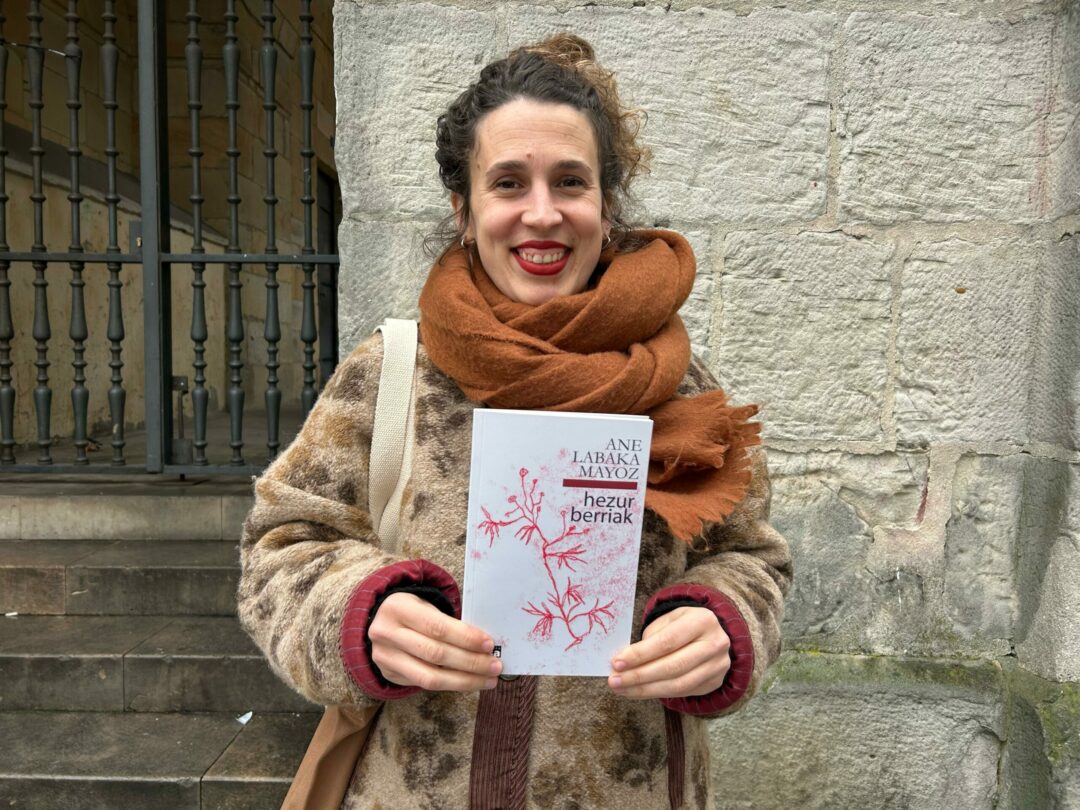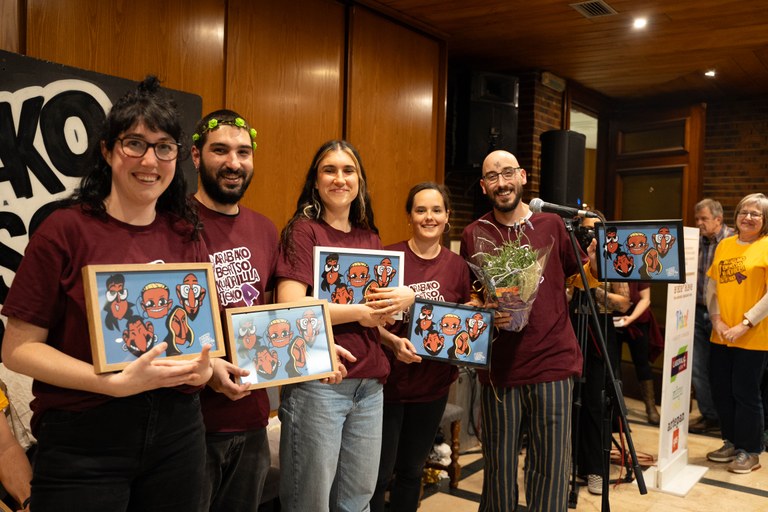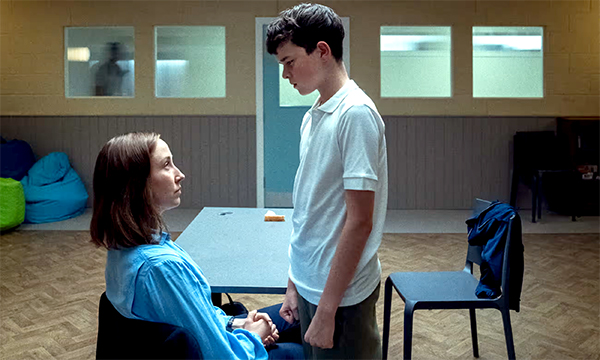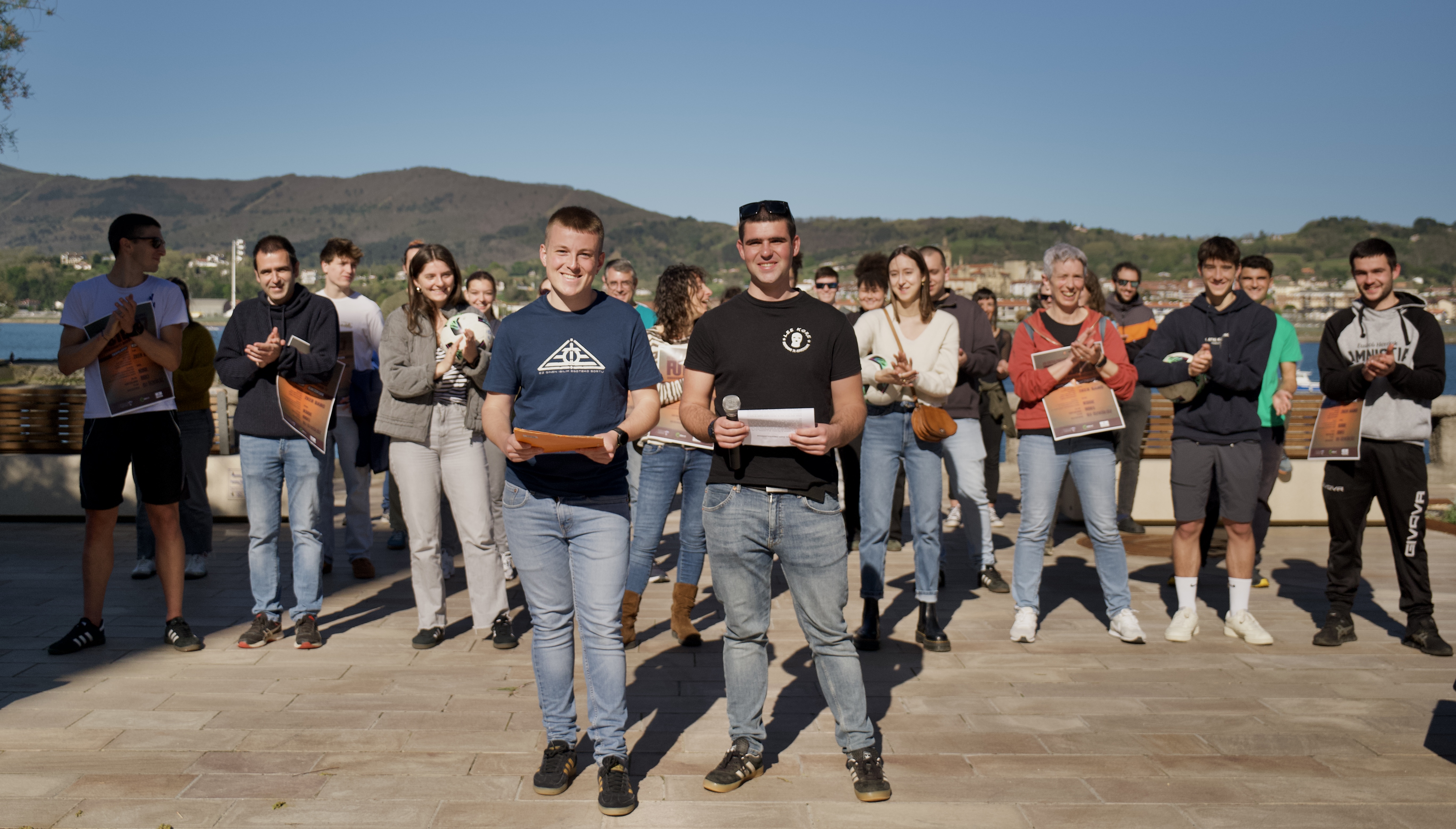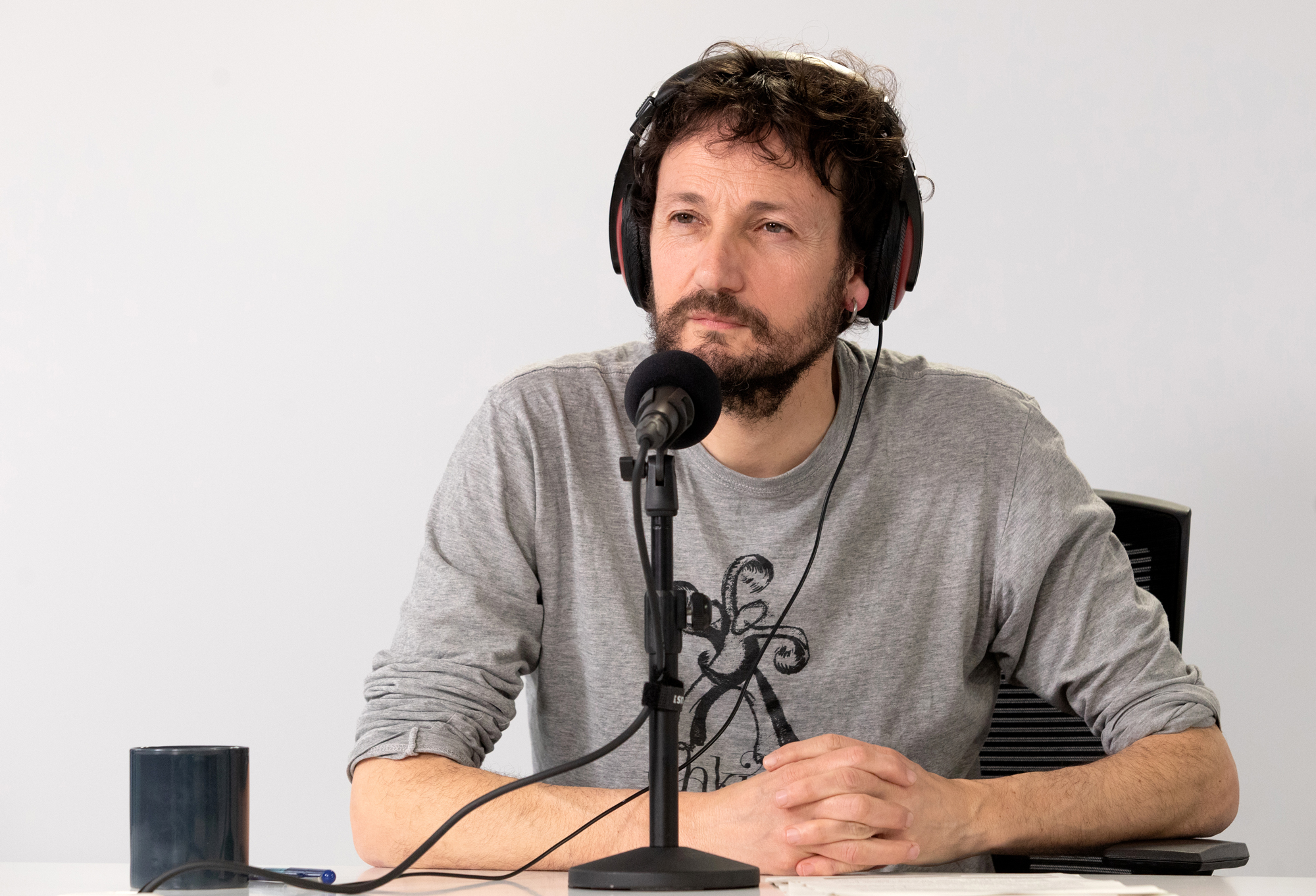Culture is precarious
- These are textual words: “If the Basque country has persisted, it is because it has developed a culture; and if that culture has persisted, it is because the Basques have kept the Basque alive”. That is what the friends of Lanartea say. Culture in living meats, with the participation of over 50 artists in a collection of cured pieces. These are short pieces, full of shelves with many voices. In short, they have warned that the current Cultural Industry is an industry built without the voice of creators.
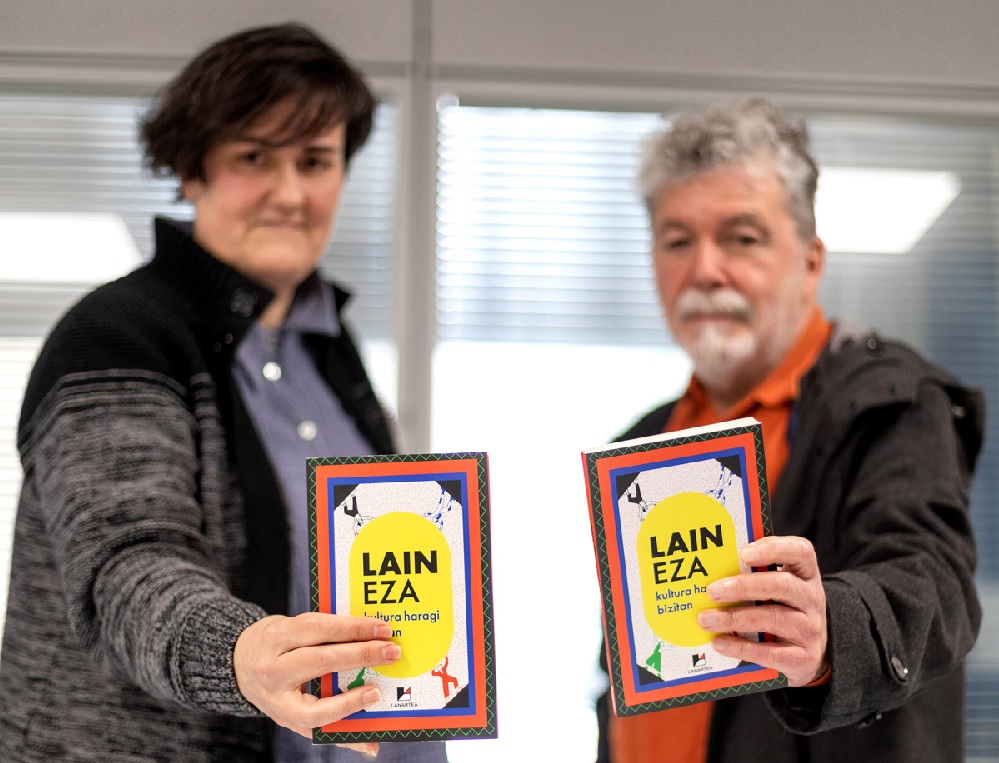
"You have to eat a lot of lobster to win the bread," says Andoni Egaña. The self-employed worker of the Basque Country will not be paid with dignity, it is not the usual, but what Egaña argues is that they will gladly invite the tourist to a meal or dinner. Charity is applied to the creator and not the salary that can be valued with dignity. After all, even if you eat a lot of shrimp, you will have to bring the bread home.
Nerea Loiola Pikaza has no time to finish coffee with milk. Today there is no time, but perhaps tomorrow. And to take care of children, it also works the same. Two messages you have in your email inbox put your day upside down: one, sent by Hacienda, urgently asks you to prepare and submit a certificate, while the other suggests that it is time to start a script for a female entrepreneurship workshop. But a phone call is the third request in the morning that asks the parents for help and puts all the planned plans upside down: they are publishers on the phone, they will send you a review text and it is urgent.

This is the controversial situation of the current autonomous creator in Basque, as described by the members of Lanartea: this month there is no money and the next yes; a poor day, another dominant day; but fundamentally, short, scarce and insecure. We have talked with Amagoia Gurrutxaga and Koldo Izagirre to dialogue with the book, coordinator and liberated from the Lanartea Association.
The association was created by autonomous creators working with the Basque Country, but due to the characteristics of the cultural system in Basque, they know that the self-employed are not a majority, because there are many who have a different profession and among them those who create and bill the culture.
But autonomy is systematically promoted. That is what is intended to be agreed in the Artist’s Statute that is being defined in Spain. Bureaucratic work has become very difficult in recent times, a very diffuse area, which becomes even more diffuse, difficult and complicated with four Haciendas Forales in the South. And the Basque creator does not produce only in his territory, but crosses the seven territories. Therefore, going to the manager can be a way of mitigating headaches, provided it is not out-of-pocket. Things are getting up today. “Today is the day when people are increasingly suffocated, today is the day when those who fail to collect a thousand euros have to spend money on paying the manager.” The new old altars of precariousness.
The concerns of yesterday and today in the Book date back to the concerns of 40 creators written in Basque, culture and work, with difficulty and pain before 1960; to the reflections of 45 new creators since 1960; and among the latter are the needs and demands of the youngest creators. They've collected multidisciplinary works like illustration, translation, literature, music, bertsolarism, theater, dance -- in total, 80 images and 85 texts. Specific demands, concerns and needs of the time, but as has already been
said, it is shown that the concern of creators in Basque is not current.
The singer Lourdes Iriondo said clearly in 1967, in Zeruko Argia, in the article entitled "The Beggars of the Basque Country": "What they say is that the Basque has to make a live war for our culture. It is not enough to say ‘our Basque Gaxua’ and such nonsense.” A few years later, writer Amaia Lasa also criticized and extended the hand of collective reflection in Anaitasuna, in 1971: “Culture also needs its liberates”, addresses the article and, finally, “I end my sermon eager to listen to others”.

However, no collective reflection seems to have been made. Izagirre: “Among the partners of our partnership, especially among the older ones, there is great disappointment. About 60 years ago there were expectations, illusion, that everything could turn, create a unified Basque and overcome the political obstacles, but it has not been turned around, that is what happens. The institutions have not given rank. They are not on a cultural level and do not seem to care much.”
“Let us save what we can” Gabriel Aresti said in 1963: “Let us save what we can and renew that little. With what comes out, if we challenge the world. This is how we save ourselves.” I believed that culture in Euskera
had to be reformed, because it seemed that the Basque country could be in this scenario that was able to open more doors, before unifying the Basque country. A reform could give the Basque universality and consolidate the linguistic model could help overcome the political and pseudo-linguistic obstacles.

Aresti's arrogant claim reflects the need for revitalization; what he proposes is basically to enter the history of the world: to take and translate the Basque to be able to give the world in Euskera. That is, counting the world in Basque. And why not, turning around, counting and singing in Basque for the world.
For example, there is a 1969 album by Mikel Laboa, composed by the letters of Bertolt Brecht; this is the song Aterbea of Gabera: “I have been told in New York / Broadway and in the canton of 26th Street / Red Winter, that a man seeks gulls / people asking / asking for atherpe / for nudes”. In addition to the songs, the effort was also seen in the literature, leading Switzerland and Belgium to stories in Euskera, as Ramón Saizarbitoria and Txillardegi begin every day and in the books of Elsa Eschel.
The despair is that the illusion of the reform of Franco's death has not been adequately addressed
The translations were subsequently started with the Basque Government in a more diligent and administrative manner, with a significant financial allocation. It was considered important that the institutions could translate the world literature into Basque and offer the possibility of translating great works in Basque, since in other languages there was also possibility. The Government commissioned the editorial Ibaizabal, which was attended by many writers and translators. Remember, it was a big challenge.
But the result is poor. “What was the promotion? Empty. And if it's not promoted, it's not sold. So let’s not say it hasn’t been sold because you don’t want it, because you don’t promote it.”
Of course, the big bets to tell the world and the Basque for the world have failed. Although the struggles of that time were with great literary works, there are similarities with the current demands for respect for the linguistic rights of digital platforms.

Second level What the Basque Country is for, that is the key. In the face of doubt, what is always worth is in Spanish, as Gurrutxaga and Izagirre have said. They mention the bases and similar official documents of various calls for work: in case of doubt, error or
contradictory data, what is valid is usually the Spanish version. And this is not just the answer given by the staff of the administration to a complaint, because the same documents tell you textually. That is, “we don’t care if the Basque is wrong, it seems that the mere fact of doing so is quite enough for some”.
It is thought and created in Spanish and translated into Basque. That, of course, if you choose to go back. And if, in case of return, you don't get value, or mistakes don't matter so much, why send the order to the translator, if it's enough to do it with network tools? Where, therefore, is the work of the Basque translators? And isn't there anyone who believes those slogans in Basque? Would we imagine that the text that was created in Euskera would be translated into Spanish with an automatic translator and the result would not be repeated?
In the search for answers to these types of questions, Izagirre summarizes: "The Basque Country is not in the economic circuit. They don't want us, of course." Art, a book that has internalized many voices in hand, aims to open the way to collective debate before it is late.

Poliorkêtês
Kerobia
Autoekoiztua, 2025
--------------------------------------------------------
Azken aldian, lerrootan asko nabil hausnartzen musikak izan beharko lukeen “misio historikoaz” eta abarrez. Eta, nolabait, zer egin beharko lukeen... [+]
Under the asphalt, the flower
Text: Monica Rodriguez
Illustrations: Rocío Araya translation
of: Itziar Ulcerati
A fin de cuentos, 2025
Ereserkiek, kanta-modalitate zehatz, eder eta arriskutsu horiek, komunitate bati zuzentzea izan ohi dute helburu. “Ene aberri eta sasoiko lagunok”, hasten da Sarrionandiaren poema ezaguna. Ereserki bat da, jakina: horra nori zuzentzen zaion tonu solemnean, handitxo... [+]
Perhaps we could say that this text is the result of an appraisal meeting. However, valuation meetings often leave a dry and bittersweet taste in the mouth. It's a sunny Tuesday afternoon. 16:53. We've connected to the valuation meeting, and we've decided to put a lemon candy in... [+]
I'm talking about Interview. With water and sand
Authors: Telmo Irureta and Mireia Gabilondo.
The actors: Telmo Irureta and Dorleta Urretabizkaia.
Directed by: Assisted by Mireia Gabilondo.
The company is: The temptation.
When: April 2nd.
In which: At the Victoria Eugenia... [+]
















